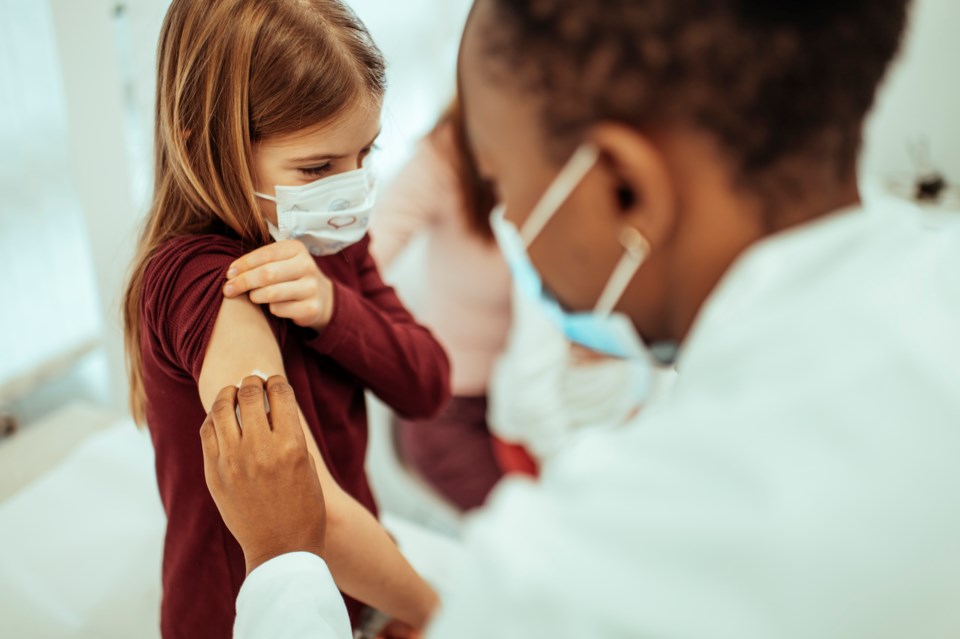REGINA — Saskatchewan is prepared to vaccinate younger children as soon as approval is cleared, say officials, but policy changes to include youth in vaccination requirements aren’t yet on the horizon.
Sources indicate that Health Canada will approve the pediatric COVID-19 vaccine from Pfizer on Friday, green-lighting the province’s already-formed plans to begin vaccinating children aged five to 11 years old.
Saskatchewan Health Authority operations manager Derek Miller said the province is prepared to begin distributing youth vaccinations as soon as doses are delivered by federal providers.
“We have long anticipated the arrival of these vaccines, so the SHA is prepared with our partners in order to ensure that as soon as we have vaccines arrive in the province, we’re able to get them deployed and clinics set up,” said Miller.
Miller did not have details on a timeline, as action will depend on the federal government’s provision of the promised 112,000 pediatric doses.
Saskatchewan first revealed details of the plan to vaccinate children under 12 on Oct. 26, stating that the program will largely take place in targeted pediatric vaccine clinics.
Dr. Tanya Diener, co-lead of the provincial immunization campaign, and vaccine chief Sheila Anderson said at that time that clinics will focus on making both parents and children comfortable during the process.
Chief medical health officer Dr. Saqib Shahab said that like the previous youth vaccination efforts for ages 12 to 17, immunization will not be required for younger children to be at school.
Public health does not plan to add youth to the proof of vaccination policy currently in place for those above age 18, he added.
The concern arises from a letter to school board administrators sent earlier this week by education minister Dustin Duncan, encouraging schools to not exclude unvaccinated children from extracurricular activities.
Shahab said that while public health is not enforcing required proof of vaccination on youth, he is encouraging that children be vaccinated especially in school settings.
“We want to fully support education and health,” said Shahab. “[We don’t want] a situation where unvaccinated children cannot attend in-class learning and other activities that are so important for them.”
The province plans to address parent concerns with an informational campaign to accompany the upcoming youth vaccine rollout, officials said in an earlier press conference.
Shahab said the current goal is to improve vaccine uptake and answer questions openly to reduce vaccine hesitancy, for both the parent and child.
“It's not their fault that their parents chose not to get them vaccinated, but at the same time, we will not get out of this pandemic unless all of us are unvaccinated, and if even a small pocket remains unvaccinated, we will continue to generate cases,” said Shahab.
The same mandate applies across the province, said Shahab, as public health wants to increase vaccine uptake in communities that continue to have a low rate of vaccination.
Medical health officers are still in contact with relevant community leaders and organizations on the topic, said Shahab.
“We have had many successes, but obviously we need to continue to address challenges to accessing vaccines, whether they are geographical, whether they are physical, in terms of transportation, or because of hesitancy,” said Shahab.
Although no answers have yet been provided on whether public health orders will be renewed at the end of November, Shahab said that the current trajectory shown in modelling data calls for them to stay in place.
“Even though our case numbers are coming down, we need to stay the course over December,” said Shahab.





